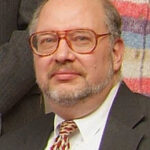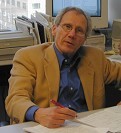The White House this week announced its annual budget proposal. It calls for reductions in military spending, increased taxes on the wealthy, and myriad other controversial proposals. The budget must be approved by Congress if it is to take effect.
The following statements from taxation and economics experts at The Heartland Institute – a free-market think tank – may be used for attribution. For more comments, refer to the contact information below. To book a Heartland guest on your program, please contact Director of Communications Jim Lakely at [email protected] and 312/377-4000 or (cell) 312/731-9364.
“Today’s Obama Democrats are just about the opposite of everything the Kennedy Democrats stood for. President Kennedy proposed and campaigned on an across-the-board income tax rate cut for everyone, which after enacted produced a historic economic boom in the 1960s. Obama has persistently raised tax rates on employers, investors, and successful small businesses, and in his new budget calls for still another $1 trillion tax increase, even though federal data from the IRS and CBO show that the so-called ‘rich’ already pay far more than their fair share.”
Peter Ferrara
Senior Fellow, Entitlements and Budget Policy
The Heartland Institute
[email protected]
312/377-4000
“A $1 trillion tax increase over 10 years, fewer tax deductions and exemptions, and stricter IRS enforcement, as if the most despised agency of the federal government needs more ways to strike fear and loathing into the hearts of Americans. This is what Obama’s budget offers. This and more income redistribution and spending to reward industries and cronies Obama favors. If he wants to run a country like this, there are any number of them in South America, the Caribbean, and Europe where his policies are already in place.”
Steve Stanek
Research Fellow, Finance, Insurance, and Real Estate
[email protected]
815/385-5602
“The president says that a budget is about choices, but his is mostly about politics.
“To the extent that the budget proposes certain choices, it is to redistribute wealth to the various constituencies of the Democratic Party from the nation as a whole. Such a proposal has no chance of passage in a legislature in which one of its chambers is controlled by the other party. The president’s budget proposal is only slightly more meaningful than the decision on the part of the Democratic majority in the Senate to not even bother with developing a budget this year.
“Having said this, the budget proposal of the president is a false choice in that the production of wealth is not invariant with respect to attempts to redistribute it, but will diminish upon such attempts, no matter that these attempts are hidden through indirect taxes and unspecified taxes ‘on the rich.’ The budget proposal will therefore be frustrated in its attempt to redistribute wealth that is not produced in the first place.
“The budget is a false choice, too, in that its unsustainable deficit makes uncertain the future value of the dollar and/or the value of the Social Security and Medicare programs, federal pensions, the federal debt, and the various federal debt guarantees. The enormous unfunded obligations of the federal government, on or off budget or contingent, are undermined by the federal government’s huge fiscal imbalance. This makes uncertain both the asset and liability that these unfunded obligations represent to us as participants in the federal government’s social insurance programs, as federal workers, as owners of federal debt or other debt guaranteed by the federal government, and as taxpayers. Continuing low business and consumer confidence undermines the so-called recovery we have been having since 2009, with the consequence of an economy operating well below its potential and trillions of dollars of production that is lost forever.
“The budget is a false choice for a third reason in that it reduces spending on national defense based on the assumption that the country will have no contingencies in which its national interests require a large conventional defense capability. This may or may not be true. But, the reduction in personnel for active, reserve and Guard units, and the heavy reliance on technology and special operations units, may come at a heavy cost to those serving in our nation’s military. On the other hand, were the national interests of the United States to be re-defined, then we might reduce our expenditures on defense to the levels of our NATO allies and Japan. But, we cannot both define our national interests in a way that requires us to be the world’s policeman and have a defense establishment that can only deal with a limited range of contingencies.”
Clifford F. Thies
Eldon R. Lindsey Chair of Free Enterprise
Professor of Economics and Finance
Shenandoah University
Policy Advisor, Economics
The Heartland Institute
[email protected]
540/665-5450
“It is interesting that the president still wishes to reduce military spending. Has anyone at the White House been following recent events in the Ukraine? Is the ‘reset’ with Putin working?
“Also, many analysts, including the Federal Reserve (witness the continuance of the easy money policy) and even Paul Krugman, believe that unemployment is still too high. Yet, any economics textbook I know of suggests that higher taxes, such as those proposed by the White House on individuals and companies, would result in an economic slowdown and even higher unemployment.
“Budget aside, given the current unemployment problem, the president’s persistent call for an increase in the minimum wage is baffling. The non-partisan CBO predicts that the unemployment rate would rise and contribute to a job loss of half a million workers. This would especially impact young workers who need the job experience before they can achieve better-paying jobs. It’s no coincidence that France, which has the highest minimum wage in Western Europe, also has the highest unemployment rate.
“Be it relations with Mr. Putin or unemployment, it is clear that Mr. Obama lives in a very different universe than many of us.”
Nicholas Lash
Professor of Economics
Quinlan School of Business
Loyola University Chicago
Policy Advisor, Economics
The Heartland Institute [email protected] 312/915-7074
The Heartland Institute is a 30-year-old national nonprofit organization headquartered in Chicago, Illinois. Its mission is to discover, develop, and promote free-market solutions to social and economic problems. For more information, visit our Web site or call 312/377-4000.







